

Reference interview. Introduction[edit] Interpersonal communication which occurs between a reference librarian and a library user to determine the specific information needs of the user.
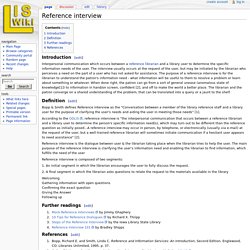
The interview usually occurs at the request of the user, but may be initiated by the librarian who perceives a need on the part of a user who has not asked for assistance. The purpose of a reference interview is for the librarian to understand the patron's information need - what information will be useful to them to resolve a problem or learn about something or whatever. When done right, the patron can go from a sort of general unease (anomalous state of knowledge[1]) to information in hand/on screen, confident [2], and off to make the world a better place. The librarian and the patron converge on a shared understanding of the problem, that can be translated into a query or a jaunt to the shelf.
Reference excellence - SLNSW. Reference excellence From SLNSW Jump to: navigation, search About ref-ex.
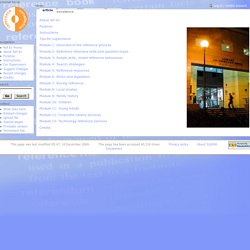
Just Ask: Integrating Accessibility Throughout Design. Some people are uncomfortable talking with people with disabilities.
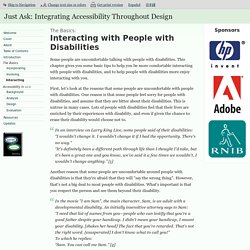
This chapter gives you some basic tips to help you be more comfortable interacting with people with disabilities, and to help people with disabilities more enjoy interacting with you. First, let's look at the reasons that some people are uncomfortable with people with disabilities. One reason is that some people feel sorry for people with disabilities, and assume that they are bitter about their disabilities. Login - Libraries Australia Search. Queensland State Archives. To make the most effective use of archival sources, you need to have already done a good deal of preliminary work to establish a basic framework of facts about the various members of your family.
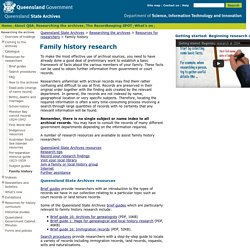
These facts can be used to obtain further information from government or court records. Researchers unfamiliar with archival records may find them rather confusing and difficult to use at first. Records are preserved in their original order together with the finding aids created by the relevant department. In general, the records are not indexed by name, geographical location or very specific subjects. Therefore, locating the required information is often a very time-consuming process involving a search through large quantities of records with no certainty that any relevant information will be found. National Scholarly Communications Forum. The 24th National Scholarly Communications Forum was held on 7 September 2015 at The Australian National University, Canberra.
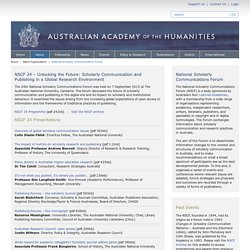
The forum discussed the future of scholarly communication and publishing in the digital era and its impact on scholarly and institutional behaviour. It examined the issues arising from the increasing global expectations of open access to information and the frameworks of traditional practices of publishing. Identifying Scholarly Sources - Scholarly Sources - LibGuides at University of Wisconsin-Green Bay. The purpose of a scholarly source is to inform, report, or make available original research (e.g., experiments, case studies, analyses).
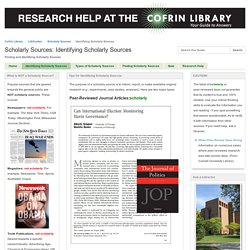
Here are two major types: Peer-Reviewed Journal Articles:scholarly Criteria Checklist for Peer-Reviewed Journal Articles: Scholarly Communications @ Duke - It is frequently interesting, and sometimes appalling, to see how a court that does not usually deal with copyright issues reacts when confronted with one.
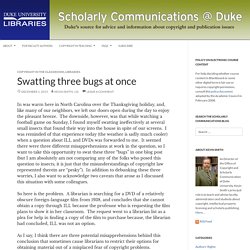
Judge Amy Berman Jackson of the U.S. District Court for the District of Columbia is certainly not a complete novice regarding copyright, but the issue she confronted in Drauglis V. Kappa Map Group must certainly have been a new one for her. Home - Evaluating resources - Library Guides at UC Berkeley. To find out more about an author: Google the author's name or dig deeper in the library's biographical source databases.
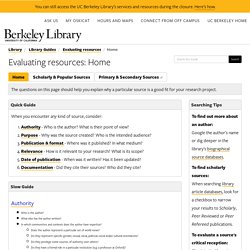
To find scholarly sources: When searching library article databases, look for a checkbox to narrow your results to Scholarly, Peer Reviewed or Peer Refereed publications. To evaluate a source's critical reception: Check in the library's book and film review databases to get a sense of how a source was received in the popular and scholarly press.